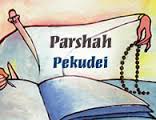Deborah Abecassis Warshawsky.
“Did we pay the mechanic for my car?” my husband asked me the other day, noting the invoice on the kitchen counter.
We?
What he was really asking was whether I had paid the mechanic. It’s a matter of division of labour. I am responsible for the daily running of the house and he works very long hours saving lives as a doctor in the Intensive Care Unit. His choice of pronoun – to my geeky sensitivity to the specificity of language – suggested we had a discussion about who would make sure the bill got paid in a timely fashion, and together we had made a plan, and perhaps even together, we stopped by the garage and gave over our credit card.
Even as I’m typing, I’m laughing at the absurdity. We don’t see each other enough hours in a week to consult over every bill, nor to complete these chores and errands together. We tackle our responsibilities independently.
Can you imagine if after a night on call, I asked my husband: “Did we save the patient?” (We were certainly both awoken when the beeper went off.)
Parashat Pekudei is the final chapter of the Book of Shemot (Exodus). The Mishkan and its furnishings are complete and brought before Moses for inspection. The text tells us:
All the work of the Mishkan, the Tent of Meeting, was completed, and the Children of Israel did according to all that the Lord commanded Moses, so did they do.
As we explored in last week’s parashah, all the tasks and crafts and work done in order to build the Mishkan and its furnishings were completed by select groups of artisans and skilled men and women who were distinguished by being “wise-hearted.” Nowhere does the text iterate that the Children of Israel made the Mishkan.
The commentary Or Hahayim, written by Rabbi Hayim ibn Attar, a Moroccan rabbi of the eighteenth century, expounds that “a man’s agent is as himself:” while the wise-hearted craftsmen actually did the work, they did it on behalf of the Children of Israel, and therefore, the construction and completion of the Mishkan were attributed to them.
Just like we paid the bill for my husband’s car.
The Or Hahayim goes on to explain that it is actually impossible for every individual to observe every single mitzvah commanded by God. For example, some commandments are only for Priests, others for Levites; some are only for men or for women; some if you live in Israel or if you live in the Diaspora. What we learn from the attribution of the work of the Mishkan’s construction to the general “Children of Israel” is that:
[T]he Torah is meant to be observed collectively, by the people as a whole, each individual deriving benefit from the observance of his neighbour and each individual’s performance complementing that of the other. (Translation is from Nehama Leibowitz, Studies in Shemot Exodus, p. 699).
I love the idea that each individual is not meant to struggle alone to fulfill each and every one of God’s commandments, that the commandments were given in such a way that we are intended to rely on each other and to work together. The observance and performance of mitzvoth are not about personal success or accomplishment, but cooperation, contribution and community.
The building of the Mishkan shows us that every group of individuals gathered together for a single purpose – in a family or in a school, for example – brings a varied mix of skills and talents. What’s important is not how each individual shines or excels at his or her given task, but how the individuals commit their talents to a greater purpose.
The Israelites who donated the gold, silver and copper made it possible for the artisans and craftsmen to produce the objects God commanded. Those who fetched water and prepared meals were also essential to the project. When we step back from the details of the Mishkan and take a broader view of the community that worked, and supported those who worked, to create a sacred space to honour and serve God, we understand why the Torah tells us – after all the minutiae – that the collective Children of Israel made the Mishkan exactly as God commanded.
It was Aristotle who said, “The whole is greater than the sum of its parts.”
No individual can do and be everything all the time. “We” is our most important pronoun.
I am grateful it’s my husband’s favourite.
Shabbat Shalom.
An Akiva parent, Deborah has an MA and PhD in the history of Jewish Bible Interpretation from McGill University as well as a Masters in Library and Information Science (MLIS) also from McGill.



